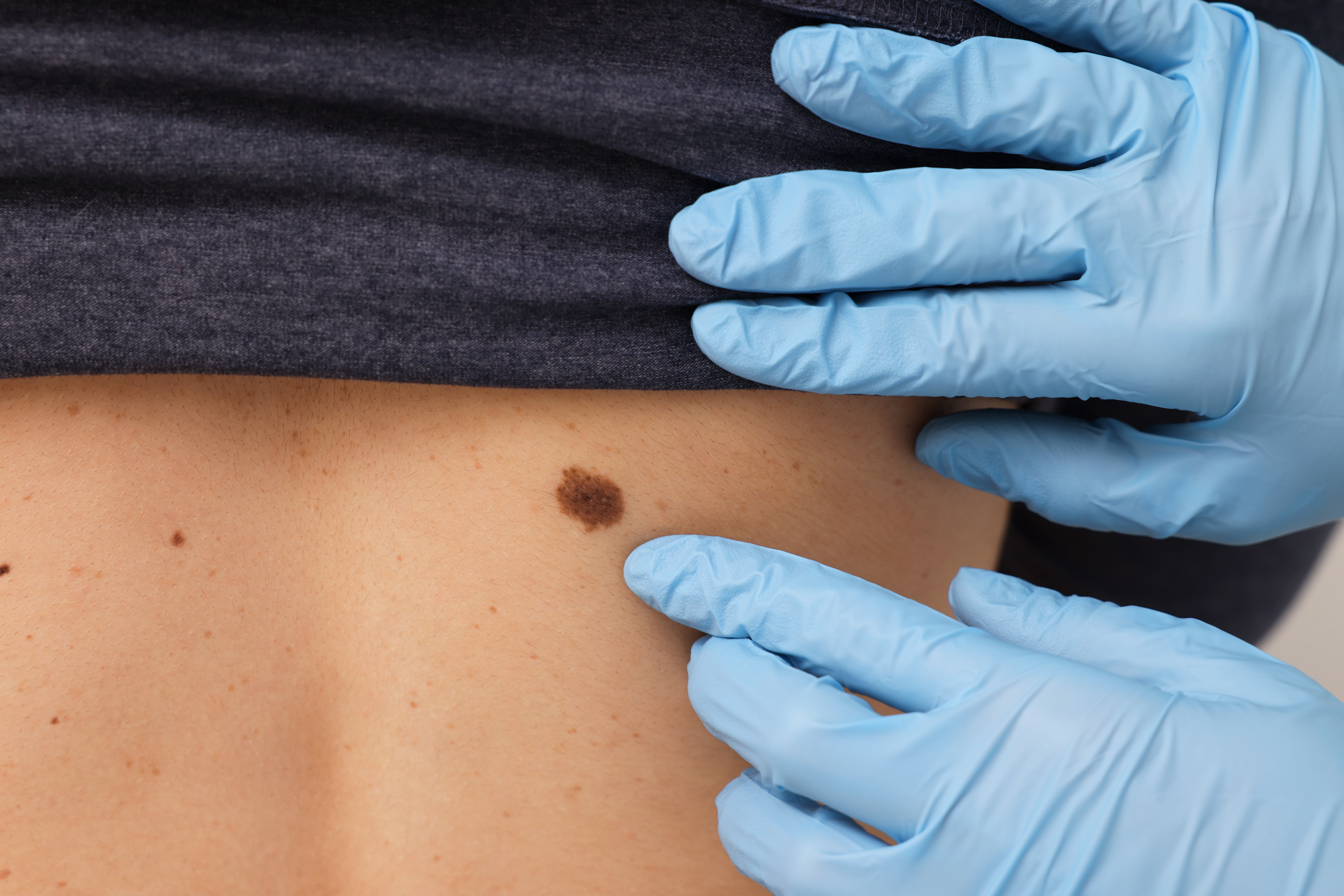
The sun’s warm glow can be inviting, but its ultraviolet (UV) rays carry risks that can lead to skin cancer, premature aging, and other serious skin conditions. As a plastic surgeon, I’ve seen firsthand the effects of sun damage and the importance of proactive skin protection. Taking proactive steps in sun protection is essential for maintaining healthy, youthful skin. Here are some of the best ways to prevent skin cancer and sun damage.
UV Exposure and Skin Cancer Risks
Skin cancer is primarily caused by excessive exposure to ultraviolet (UV) rays from the sun, tanning beds, and sunlamps. These rays damage skin cells, potentially leading to cancerous changes. By understanding the risks associated with UV exposure, you can take steps to protect your skin effectively.
Daily Sun Protection: More Than Just a Summer Concern
Adequate sun protection is a year-round commitment. UV rays can penetrate cloud cover and reflect off surfaces like water, snow, and even cement, which means you’re at risk even on cloudy and cooler days. Here’s how to protect yourself:
- Seek Shade: Especially between 10 a.m. and 4 p.m., when the sun’s rays are strongest. Utilize umbrellas or tree cover when outdoors during these hours.
- Wear Protective Clothing: Opt for long-sleeved shirts, pants, and wide-brimmed hats. Clothing with an Ultraviolet Protection Factor (UPF) of 30 or greater provides significant protection.
- Choose the Right Sunglasses: Ensure your sunglasses offer 100% UV protection to safeguard your eyes and the surrounding skin.
- Apply Broad-Spectrum Sunscreen: Use a sunscreen with at least SPF 30, which blocks UVA and UVB rays. Apply generously to all exposed skin and reapply every two hours or more frequently if swimming or sweating.
The Dangers of Indoor Tanning
Indoor tanning exposes the skin to intense UV radiation, increasing the risk of skin cancers and accelerating skin aging. A “base tan” is not protective but indicates skin damage. Here are the facts:
- Avoid Tanning Beds: These are not safer alternatives to sunbathing; they emit UV levels that can exceed those of the midday summer sun.
- Use Self-Tanning Products Instead: Consider using FDA-approved sunless tanning lotions, bronzers, or sprays as a safer alternative to achieve a tanned look without the risks associated with UV exposure.
Sunscreen: Your Everyday Armor
The right sunscreen can be your first line of defense against UV rays. Apply a broad-spectrum, water-resistant sunscreen generously to all exposed skin, including the tops of your feet, ears, and neck. Reapply sunscreen every two hours or immediately after swimming or excessive sweating. Keep babies under six months out of direct sunlight. Older children should wear sunscreen with at least SPF 30 and protective clothing.
Beyond Sunscreen: Additional Protective Measures
Many brands now offer clothing designed with UV protection in mind. These are particularly useful during outdoor activities. For those who wear makeup, products with SPF 30 or higher – like those we carry from Colorescience – can provide an additional layer of protection. Remember, apply makeup over sunscreen, not as a substitute.
Regular Skin Examinations: Early Detection Saves Lives
Regular self-examinations and professional check-ups can catch skin cancer early when it is most treatable. Be vigilant about changes in your skin, including new growths or changes in moles, and consult a dermatologist if you notice any suspicious changes.
Self-Exam Tips
Check your skin monthly. Look for new or changing lesions that itch, bleed, or don’t heal properly. Also, check for spots that are:
- Asymmetrical
- Have uneven or blurred borders
- Irregular colors
- Bigger than a pencil eraser
- Evolving over time
For more about skin checks, read our article: “What Does Skin Cancer Look Like?”
Topical Repair Creams
These can address pre-cancerous changes in the skin, often containing ingredients that help repair DNA damage.
Treatments like fractional radiofrequency can effectively remove pre-cancerous cells, reduce signs of aging, and improve skin texture with minimal downtime.
Understanding the Types of Skin Cancer
Skin cancer is the most common form of cancer globally, and it primarily manifests in three types: basal cell carcinoma, squamous cell carcinoma, and melanoma. Each type differs significantly in appearance, aggressiveness, and commonly affected body areas.
- Basal Cell Carcinoma: BCC is the most common and least aggressive form of skin cancer. It typically appears as a slightly transparent bump on sun-exposed skin, such as the face, ears, and neck. Although BCC grows slowly and rarely spreads to other body parts, it can cause significant damage by growing and invading surrounding tissues.
- Squamous Cell Carcinoma: SCC is more aggressive than BCC and often appears as a rough, scaly patch that may bleed or develop into an open sore. It commonly occurs in areas of the body that are frequently exposed to the sun, such as the rim of the ear, face, lips, and hands. SCC can metastasize or spread to other body parts if not treated promptly.
- Melanoma: The most dangerous form of skin cancer, melanoma, is known for its ability to spread rapidly. It often develops in or near an existing mole or appears suddenly as a new dark spot on the skin. Melanomas vary greatly in color, shape, and size but typically present as a patch with irregular borders and multiple colors. It’s crucial to detect melanoma early as it can be life-threatening once it spreads to other organs.
Skin Cancer Risk Factors
Several factors can increase your risk of developing skin cancer, including genetic predispositions, skin type, and family history:
- Genetic Predispositions: Genetic mutations can make individuals more susceptible to skin cancer. Genetic mutations related to cell growth and repair can increase the risk of melanoma.
- Skin Type: People with lighter skin that freckles or burns quickly have a higher risk of skin cancer. This is due to having less melanin, which provides some protection against UV radiation. However, it’s important to note that people with all skin tones can develop skin cancer.
- Family History: Having a family history of skin cancer significantly increases an individual’s risk. If a close relative has been diagnosed with skin cancer, particularly melanoma, this may indicate a shared genetic vulnerability or similar sun exposure habits within the family.
Understanding these types of skin cancer and their risk factors is crucial for prevention and early detection. Regular skin examinations, both self-conducted and by healthcare professionals, can help catch these cancers early when they are most treatable.
Innovations in Sunscreen Formulations
Advancements in sunscreen technology have significantly enhanced the efficacy and wearability of sun protection products. Leading skincare brands like Colorescience and SkinCeuticals have been at the forefront of these innovations, introducing products that protect against sun damage and improve skin health and appearance:
Colorescience Sunforgettable® Total Protection
Colorescience has revolutionized sun protection with its Sunforgettable® Total Protection™ line, which offers comprehensive defense against UVA/UVB rays, pollution, blue light, and infrared radiation. A standout feature of these products is the use of EnviroScreen™ Technology, which combines mineral sunscreen ingredients like zinc oxide and titanium dioxide with innovative additives.
SkinCeuticals Advanced Brightening UV Defense
SkinCeuticals is known for integrating cutting-edge science with skincare, and their Advanced Brightening UV Defense sunscreen is no exception. This dual-action sunscreen offers UV protection and skin-brightening effects, perfect for those looking to maintain safe and radiant skin.
Both Colorescience and SkinCeuticals are pushing the boundaries of traditional sunscreen by incorporating these advanced technologies. Their products focus on high-level sun protection and promoting overall skin health, addressing concerns like premature aging, skin tone irregularities, and environmental damage.
Evaluate Your Skin Health Today
Book a Free SkinScope Analysis with Our Qualified Aestheticians in Flagstaff, Arizona
Our practice is dedicated to helping you achieve the best possible skin health outcomes with a personalized approach tailored to your unique skin type and lifestyle. Whether you’re concerned about preventing skin damage, exploring advanced sunscreen options like those from Colorescience and SkinCeuticals, or seeking expert advice on skin cancer prevention, we are here to help. Our skilled professionals are committed to providing you with the latest skincare technology and comprehensive care.
Don’t wait to take control of your skin health. Schedule a consultation with us to learn more about your skin protection options and receive a customized skincare regimen that aligns with your health goals. During your consultation, we can discuss your skin concerns, evaluate your current skin health, and recommend the most effective treatments to protect and enhance your skin.




